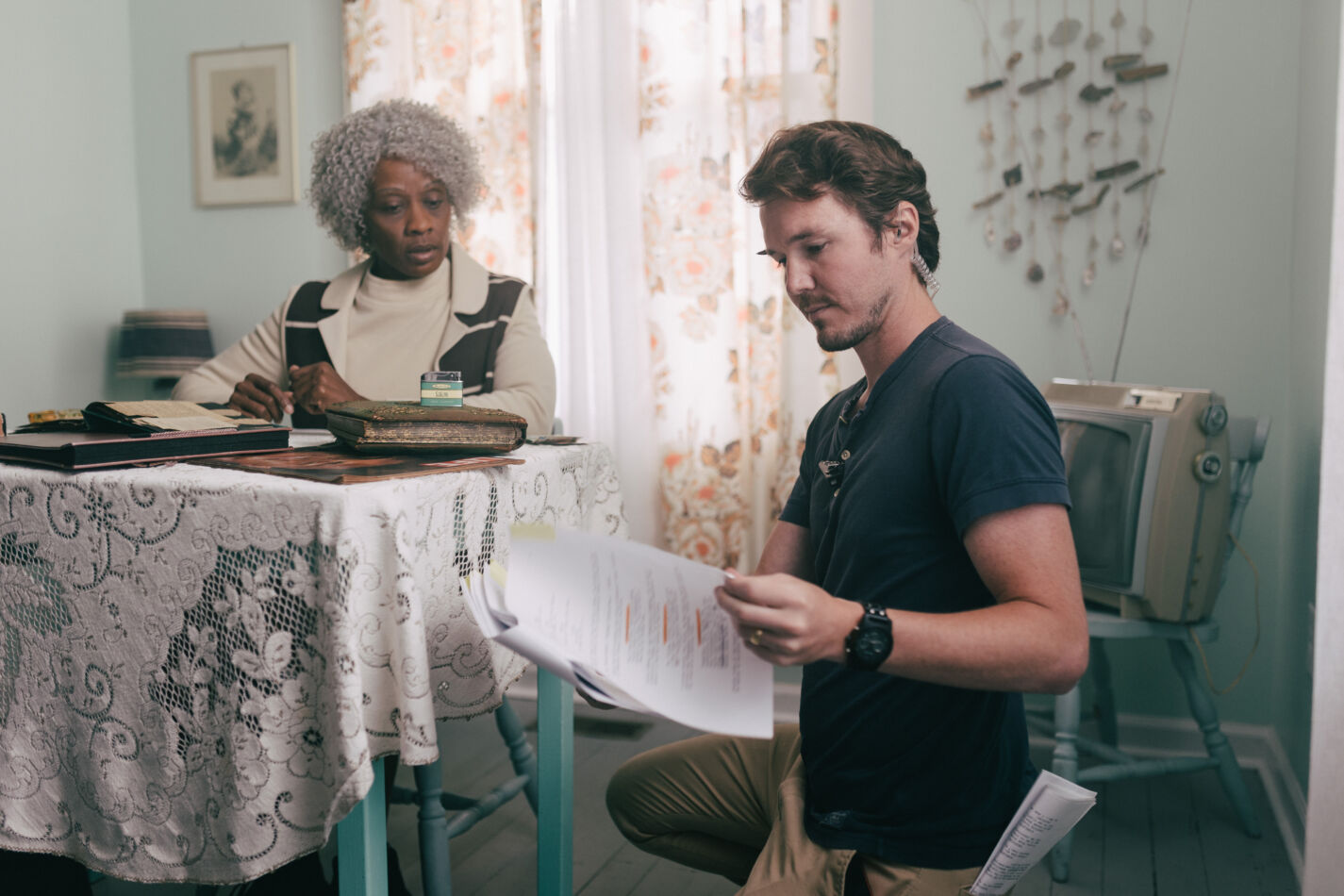In the Pines, a John Locke Foundation-produced short film based on the 1898 insurrection that toppled Wilmington’s elected local government, recently won Best Film and two other awards at the Golden Hour Film Festival in Morganton.
In addition to Best Film, Pandora Broadwater won Best Actress for her role as an older version of protagonist Scarlett Manning and John Potvin won Best Actor for his portrayal of Sam Murray. All three awards are from the “Master Craftsman” category, the festival’s highest level of competition.

In the Pines’ producer and co-writer Greg de Deugd, who is also Locke’s Creative Director, accepted the honor for Best Film, telling Carolina Journal, “So many brilliant and talented artists came together to make this film, and I can safely say I speak for all of them when I express our sincere gratitude to everyone at Golden Hour Film Festival for putting on such an amazing event.”
Raleigh-based actress Pandora Broadwater told Carolina Journal she was “in shock” of winning Best Actress.
“This project was a great experience for me, and I truly enjoyed working with the phenomenal cast,” said Broadwater. “We had a great team to bring this story to life.”
Best Actor winner John Potvin also told Carolina Journal, “As an actor and a history buff, this film was a dream come true. I had such an amazing experience on and off the set, and to be part of telling this story has been such an honor.”
The film received runner-up positions in two other categories: Best Editing for Dugan Bridges and Samantha Torres, and Best Cinematography for Bryan Redding.
Hosted by Western Piedmont Community College, the 2023 edition of the Golden Hour Film Festival marks the festival’s third year of operation. For this year’s festival, filmmakers from across the country entered 20 films for screening. All films entered must be 25 minutes or less in length.
“The Golden Hour Film Festival prides itself on providing from all ages and experience levels the opportunity to shine at our festival. We are more than just a festival, we are a growing community of support and celebration of filmmakers,” said Julie Whitis Church, the festival’s founder and organizer.
In the Pines has previously entered a dozen domestic and international film festivals, winning awards and gaining nominations in seven of them.
BASED ON A TRUE STORY
In the Pines focuses on Scarlett Manning, portrayed as her older self by Pandora Broadwater and younger by Amara Ayler. In the film, Manning, the daughter of a black newspaper owner in Wilmington, recounts the events of the 1898 Wilmington coup to a documentary crew in the 1960s.
According to the North Carolina History Project, white supremacists within the state’s Democratic Party planned the coup as a reaction to the electoral success of the Republican and Populist parties. From 1894 to 1900, both parties ran on joint tickets against the Democrats, becoming known as “Fusionists.” Fusionists won the state’s governor’s office in 1896, with Daniel Lindsay Russell becoming N.C.’s first elected GOP governor since 1872.
Fusionists gathered significant support from Wilmington’s prominent black population, who accounted for most of the population and economic activity in what was then-N.C.’s largest city. By 1898, Wilmington Fusionists consisted of black and white leaders and held positions of power, including the city’s mayorship.
In response to African-Americans gaining political influence, N.C. Democrats, led primarily by then-future Governor Charles Aycock, organized a “White Supremacy Campaign” aimed at suppressing the Fusionist political base while galvanizing white voters. The campaign culminated in a violent assault on Wilmington’s black population around the time of the city’s 1898 local election.
Racist paramilitary groups, such as the Red Shirts and the Wilmington Light Infantry, attacked black residents and businesses, including the city’s black-owned newspaper, on November 10, 1898. Some estimates report that over 300 died in the violence that transpired.
Following the massacre, Democratic politicians took over Wilmington as thousands of the city’s black population and Fusionist leaders fled.
In the direct aftermath, Raleigh’s News and Observer newspaper and Democratic leaders characterized the events as a “race riot,” placing blame squarely on African-Americans. Only by the early 1990s did the violence’s true character begin to be widely accepted and adopted as part of N.C.’s de facto historical record.
According to de Deugd, In the Pines examines the historical telling of the Wilmington coup.
“Our film challenges many preconceived notions of history, and we hope it spurs everyone to really learn more about our past, but at its core, this is a tale of good versus evil and the forces that we come up against when trying to tease out the truth from the lies,” said de Deugd.
In the Pines is set to screen at 10 other film festivals throughout the rest of 2023. The film will next compete virtually at both the Pupila Film Festival in Olinda, Brazil, and the Southern Shorts Awards in Roswell, Georgia at the end of August. The next screening in North Carolina is September 2 at the Foothills Film Festival in Shelby.


